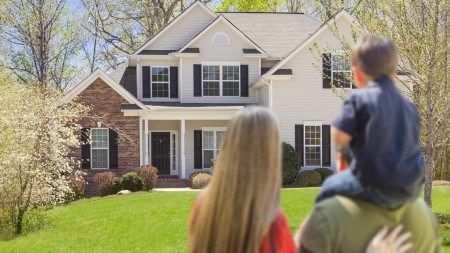For first time home buyers the decision between buying a starter home or looking for the perfect forever home is an important one. Here's how to make the best call.
A starter home is a property that will suit your needs for approximately the next five years or until your circumstances change, whereas a forever home is a property that you can see yourself living in indefinitely – or at least for the next 20 to 30 years. The question is, do you hold back until you can afford your forever home, or do you take the plunge with a starter home?
“The decision to buy a starter home now or wait will be determined by a few aspects, such as affordability and your individual needs. While most people would opt to purchase their dream home straight away, the large majority are not in a financial position to do so. In today’s market, a professional income still may not be enough to comfortably afford a home in some of the more expensive areas. It may take several years before a household is earning enough to purchase their dream home,” says Adrian Goslett, Regional Director and CEO of RE/MAX of Southern Africa.
Goslett goes on to explain that once in the property market, it is easier to build from there, as property is an appreciating asset that will help homeowners afford the upgrade when it later becomes time to sell. “There is also the option of keeping your starter home as an investment property and renting it out as a form of passive income,” he suggests.
However, if you decide to wait for your forever home, Goslett advises you to rent a property that is reasonably priced so that you can build up as much savings as possible to put down a sizeable deposit. “The larger deposit they can put down the better, as this will reduce the monthly bond repayment. An advantage of waiting is avoiding the chance of being stuck with a property in a bad time to sell and being unable to move up. A disadvantage of waiting is home prices will continue to increase, so something that is not affordable now might be potentially even less affordable in the future,” he cautions.
For buyers who want to fast-track the process of buying their forever home, Goslett recommends that buyers start where they can to get their foot into the door. “It is a good idea to pay more on your bond instalments to reduce the bond term and the interest payable. An additional payment of just R300 on the monthly bond repayment can reduce a 20-year bond of R500,000 by almost four years. Budgeting for this extra payment also helps homeowners be prepared for future an interest rate increases. Ultimately, the more you are able to lower your debt on your starter home, the more profit you’ll earn on the sale which you can then use towards purchasing your forever home,” Goslett concludes.




